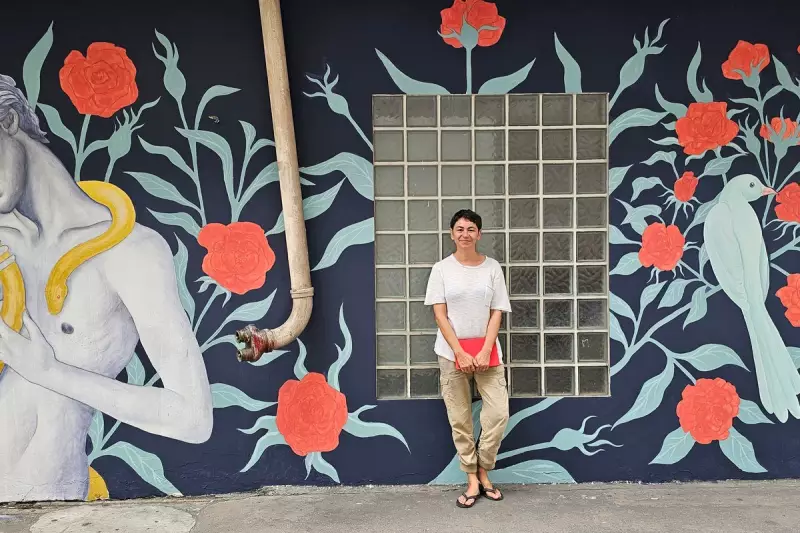
The vibrant streets of Bangkok have become the stage for an intense cultural debate after authorities ordered the partial erasure of a striking nude mural by acclaimed French artist Myrtille Tibayrenc.
The controversial artwork, which depicted abstract nude figures in Tibayrenc's distinctive style, had been prominently displayed on the exterior of the Jam Cafe, a popular cultural venue in the city's creative hub. The mural stood for several weeks as a celebrated addition to Bangkok's growing street art scene before facing official scrutiny.
Cultural Clash on Bangkok's Walls
Local district officials intervened, declaring the artwork culturally inappropriate and demanding its removal. The decision has sparked heated discussions about artistic freedom versus cultural sensitivity in Thailand's public spaces.
"They told us the mural was too explicit and didn't respect Thai culture," Tibayrenc revealed in an exclusive interview. The artist expressed both frustration and understanding, acknowledging the need for cultural respect while defending artistic expression.
The Whitewashing Begins
In a compromise that satisfied no one, cafe owners were forced to partially paint over the mural, obscuring the nude elements while leaving other sections intact. The result is a patchwork artwork that serves as a visual metaphor for the ongoing tension between creative expression and cultural norms.
"It's heartbreaking to see your work being destroyed," Tibayrenc confessed, watching as workers covered sections of her creation with white paint. "But I understand we need to find a balance."
Broader Implications for Thailand's Art Scene
This incident isn't isolated. Thailand has experienced several similar controversies where public art has clashed with conservative values. The case raises important questions about how rapidly evolving urban centres like Bangkok navigate between traditional values and contemporary artistic expression.
Street art enthusiasts and free speech advocates have voiced concerns that such censorship could stifle Bangkok's emerging reputation as a regional arts destination. Meanwhile, supporters of the decision argue that public art must respect local sensibilities and cultural traditions.
The partially erased mural continues to draw visitors to the Jam Cafe, now serving as both artwork and political statement about the complex relationship between art, culture, and public space in modern Thailand.





